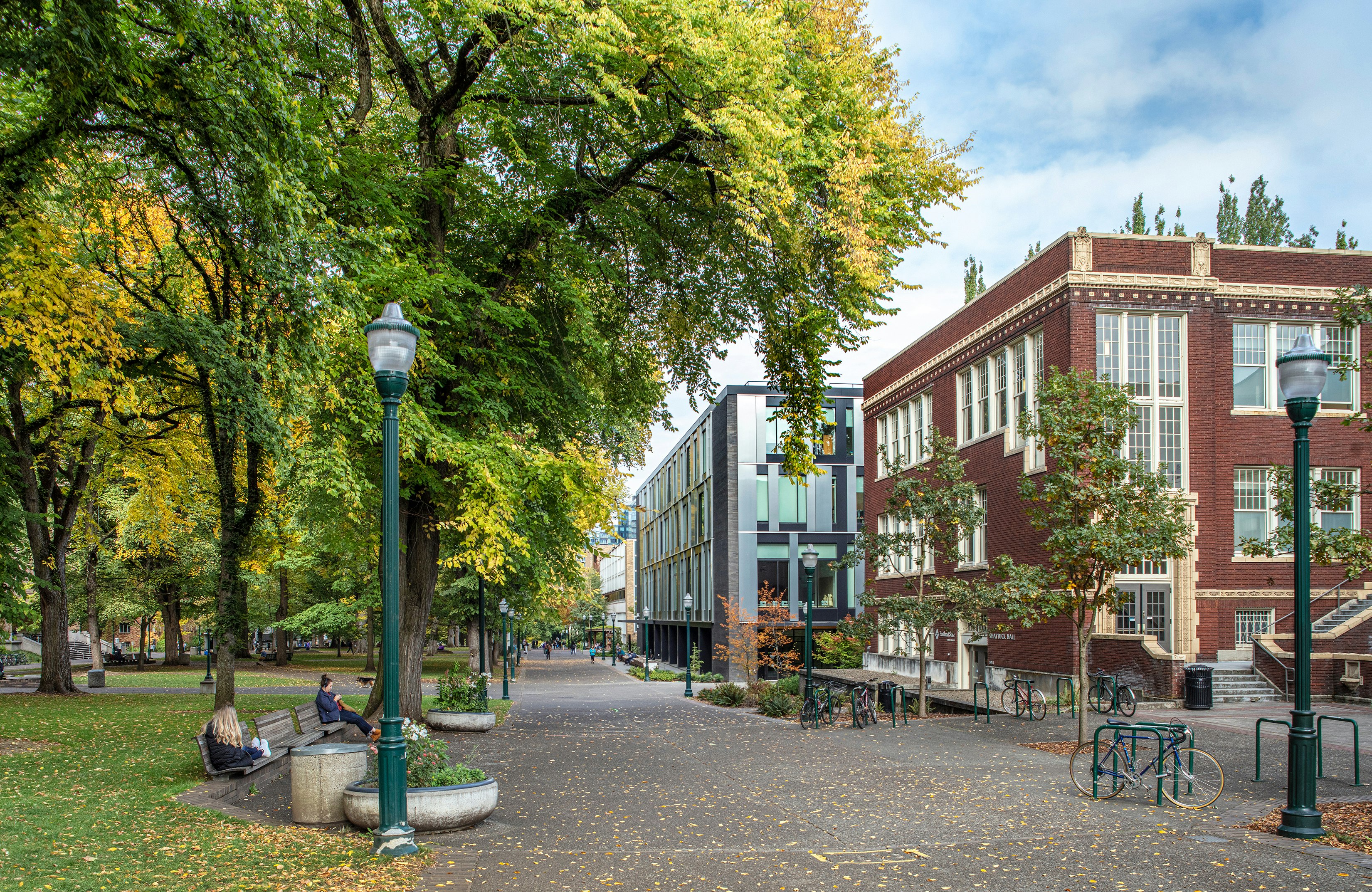

Portland State University | PSU
Want to see your chances of admission at Portland State University | PSU?
We take every aspect of your personal profile into consideration when calculating your admissions chances.
Portland State University | PSU’s 2024-25 Essay Prompts
Honors College Essay
If you would like, please let us know anything else you would like the faculty to consider as they read your application (life circumstances, extracurricular activities, etc). This is purely optional and applicants who do not choose to add additional information will not be affected.
Select-A-Prompt Short Response
Respond to either Essay Prompt 1a or Essay Prompt 1b with a 300-500 word carefully composed essay.
Option 1
In her essay “Open Door,” from A Field Guide to Getting Lost (2005), Rebecca Solnit writes,
Leave the door open to the unknown, the door into the dark. That’s where you find the most important things come from, where you by yourself came from, and where you will go . . . . The things we want are transformative, and we don’t know or only think we know what is on the other side of that transformation. Love, wisdom, grace, inspiration—how do you go about finding these things that are in some ways about extending the boundaries of the self into unknown territory, about becoming someone else?
Certainly for artists of all stripes, the unknown, the idea or the form or the tale that has not yet arrived, is what must be found. It is the job of artists to open doors and invite in prophesies, the unknown, the unfamiliar; it’s where their work comes from, although its arrival signals the beginning of the long disciplined process of making it their own. Scientists too, as J. Robert Oppenheimer once remarked, “live always at the ‘edge of mystery’—the boundary of the unknown.” But they transform the unknown into the known, haul it in like fishermen; artists get you out into that dark sea.
Edgar Allen Poe declared, “All experience, in matters of philosophical discovery, teaches us that, in such discovery, it is the unforeseen upon which we must calculate most largely.” Poe is consciously juxtaposing the word “calculate,” which implies a cold counting up of the fact or measurements, with the “unforeseen,” that which cannot be measured or counted, only anticipated. How do you calculate upon the unforeseen? It seems to be an art of recognizing the role of the unforeseen, of keeping your balance amid surprises, of collaborating with chance, of recognizing that there are some essential mysteries in the world and thereby a limit to calculation, to plan, to control. To calculate on the unforeseen is perhaps exactly the paradoxical operation that life most requires of us.
For this essay, show how you think with and respond to another writer. In a carefully crafted and well-organized essay of 300-500 words, address the following: What do you understand Solnit to be saying about the unknown? What is at stake in engaging the unknown? How do artists, scientists, and philosophers approach the unknown? Why is this significant? What, if anything, would you add to this discussion of the unknown?
Option 2
In her book, The Power of Place: Urban Landscapes as Public History, the architect and urban historian Dolores Hayden writes,
“Place” is one of the trickiest words in the English language, a suitcase so overfilled one can never shut the lid. It carries the resonance of homestead, location, and open spaces in the city as well as a position in a social hierarchy. The authors of books on architecture, photography, cultural geography, poetry, and travel rely on “sense of place” as an aesthetic concept but often settle for “the personality of a location” as a way of defining it. Place for such authors may engage patterns in the mellow brick of an eighteenth-century building, the sweep of the Great Plains, the bustle of a small harbor full of sailboats, but such images can easily become cliches of tourist advertising. In the nineteenth century and earlier, place also carried a sense of the right of a person to own a piece of land, or to be part of a social world, and in this older sense place contains more political history. Phrases like “knowing one’s place” or “a woman’s place” still imply both spatial and political meanings.
For this essay, show how you think with and respond to another writer. In a carefully crafted and well-organized essay of 300-500 words, address the following questions: What is Hayden saying about place and why is the concept significant? What do you think Hayden means when she writes that place holds both spatial and political meanings? What, if anything, would you add to this discussion of place?